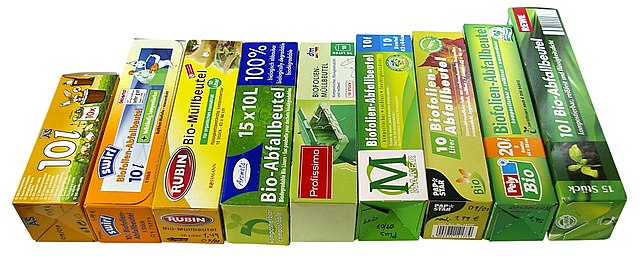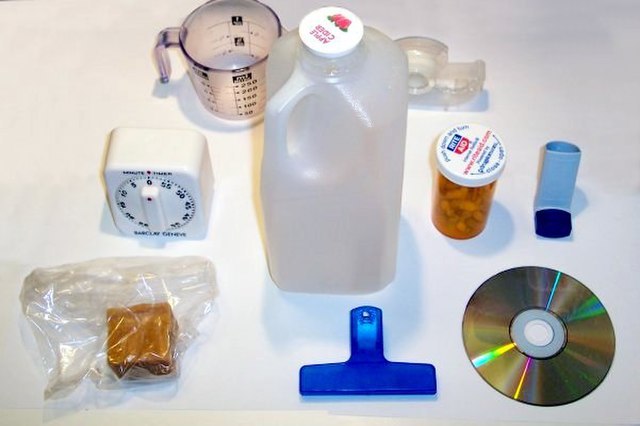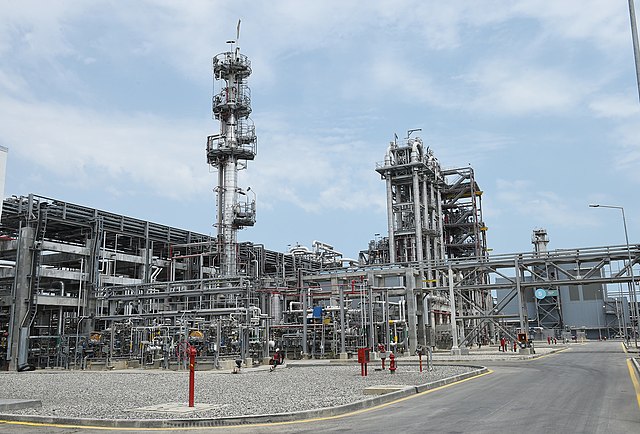Bioplastics are plastic materials produced from renewable biomass sources, such as vegetable fats and oils, corn starch, straw, woodchips, sawdust, recycled food waste, etc. Some bioplastics are obtained by processing directly from natural biopolymers including polysaccharides and proteins, while others are chemically synthesised from sugar derivatives and lipids from either plants or animals, or biologically generated by fermentation of sugars or lipids. In contrast, common plastics, such as fossil-fuel plastics are derived from petroleum or natural gas.
Biodegradable plastic utensils
Flower wrapping made of PLA-blend bio-flex
Boxed products made from bioplastics and other biodegradable plastics
Packaging peanuts made from bioplastics (thermoplastic starch)
Plastics are a wide range of synthetic or semi-synthetic materials that use polymers as a main ingredient. Their plasticity makes it possible for plastics to be molded, extruded or pressed into solid objects of various shapes. This adaptability, plus a wide range of other properties, such as being lightweight, durable, flexible, and inexpensive to produce, has led to their widespread use. Plastics typically are made through human industrial systems. Most modern plastics are derived from fossil fuel-based chemicals like natural gas or petroleum; however, recent industrial methods use variants made from renewable materials, such as corn or cotton derivatives.
Household items made of various types of plastics
A plastic handle from a kitchen utensil, deformed by heat and partially melted
A Slovnaft facility in Bratislava, Slovakia
A SOCAR Polymer polypropylene plant in Sumgayit, Azerbaijan








